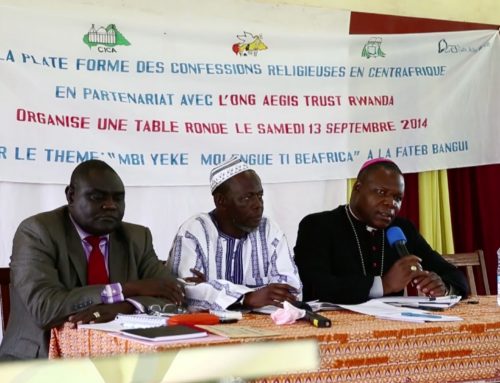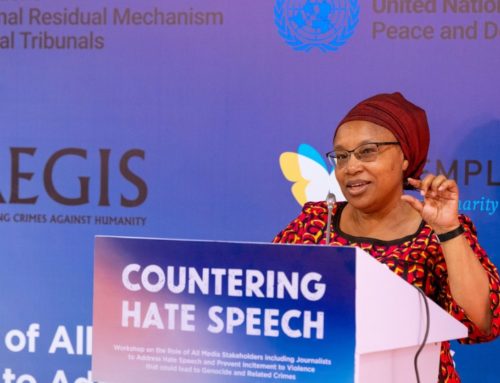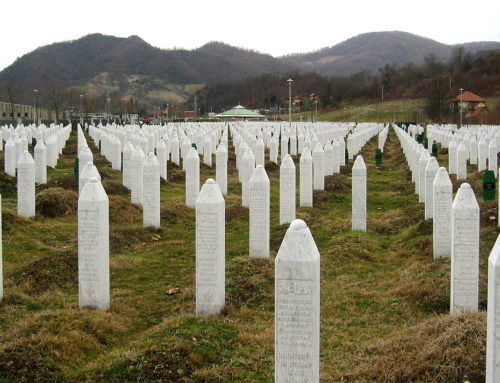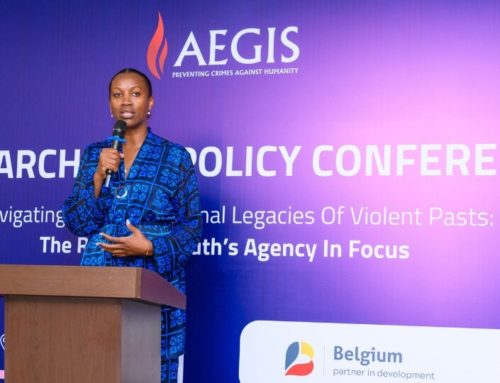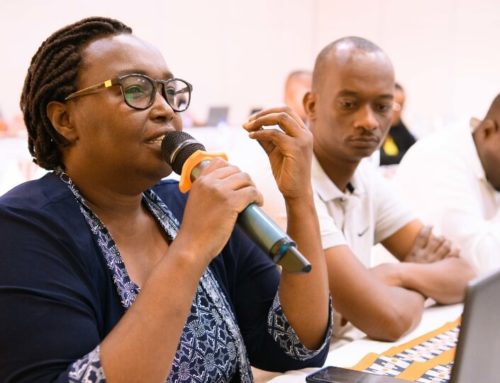21 Feb 06
 A Holocaust survivor and students at the Holocaust Centre in Nottinghamshire engaged in discussion with students and a Rwandan genocide survivor at the Kigali Genocide Memorial in Rwanda, through a live video-conferencing link. This was the first time that live video-conferencing of this kind has ever been set up between Rwanda and the UK – and now it is available for you to view in it’s entirety. Click here to view the weblink (click here to view low resolution version).
A Holocaust survivor and students at the Holocaust Centre in Nottinghamshire engaged in discussion with students and a Rwandan genocide survivor at the Kigali Genocide Memorial in Rwanda, through a live video-conferencing link. This was the first time that live video-conferencing of this kind has ever been set up between Rwanda and the UK – and now it is available for you to view in it’s entirety. Click here to view the weblink (click here to view low resolution version).
Martin Stern, who survived the Holocaust as a child and now lives in Leicester, and students from Tuxford Comprehensive School, participated from the Holocaust Centre. Students at the UK end were able to ask face to face about the Rwandan survivor’s experience, and students in Rwanda were be able to ask Martin face to face about his experience in the Holocaust.
Along with the Rwandan genocide survivor and schoolchildren, participants at the Kigali Genocide Memorial included the President of the Human Rights Commission, The Honourable Evarist Kalisa, and teachers from Nottingham and other parts of the UK currently on a Field Seminar led by former UK Schools Minister Stephen Twigg (now Special Projects Director for the Aegis Trust).
The Aegis Trust for genocide prevention is responsible for both the UK Holocaust Centre and the Kigali Genocide Memorial, which has become the national focus for remembrance and education about the genocide in Rwanda.
“Being able to bring people closer together who have suffered genocide is highly significant,” says Dr James Smith, Chief Executive of the Aegis Trust, speaking from Kigali. “Sometimes, the further away events are, the less importance we attach to them. However, being able to talk to someone live in Rwanda and ask them about the experience they went through in the genocide reinforces that mass murder of groups of people can happen anywhere, to anyone, and we all need to play a role in ensuring it never happens again.”
Stephen Twigg stated, “Today this is connecting students learning at the memorial and education centres in Rwanda and the UK. In future we hope to enable survivors here in Rwanda to communicate through this technology with students in schools throughout Britain.”

